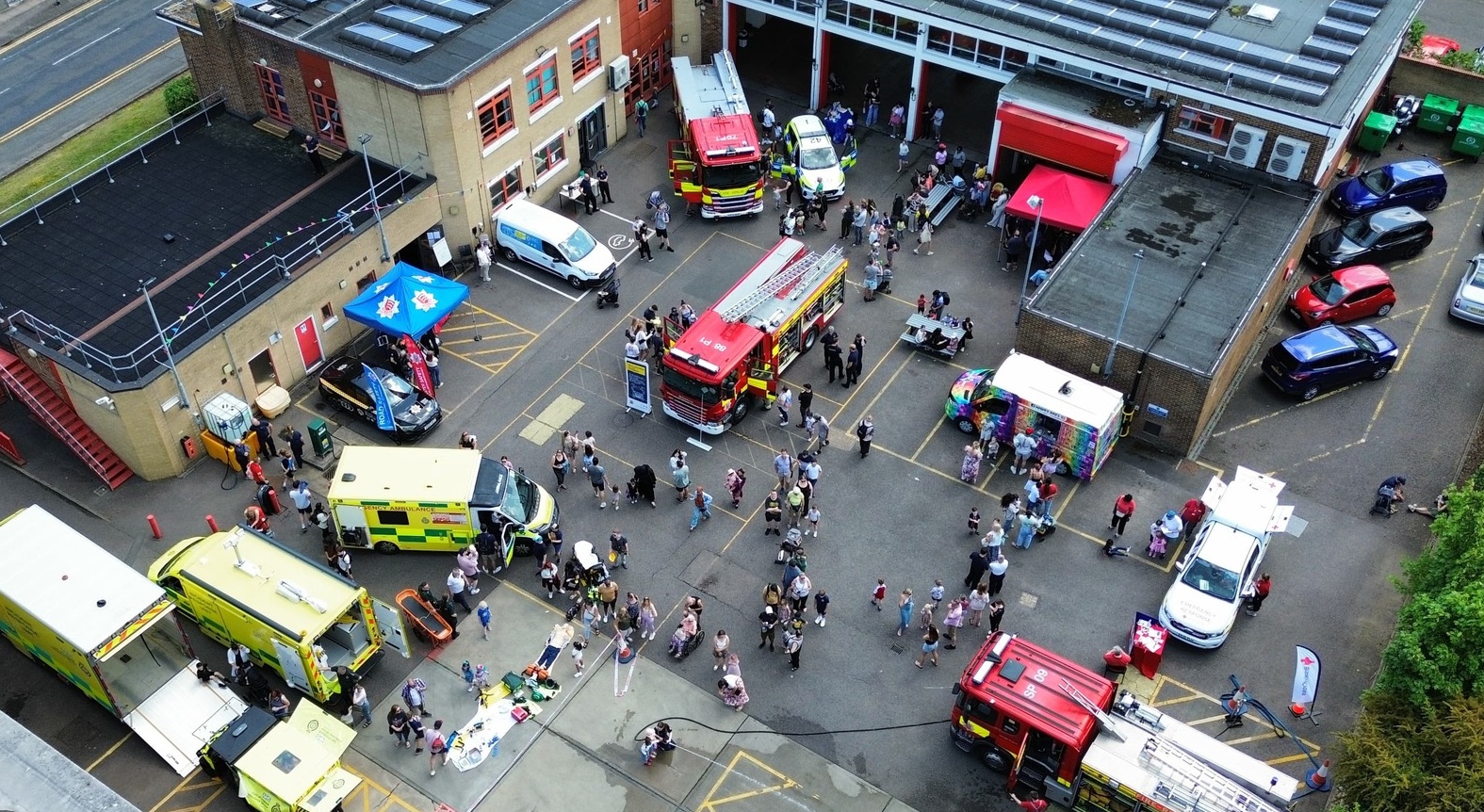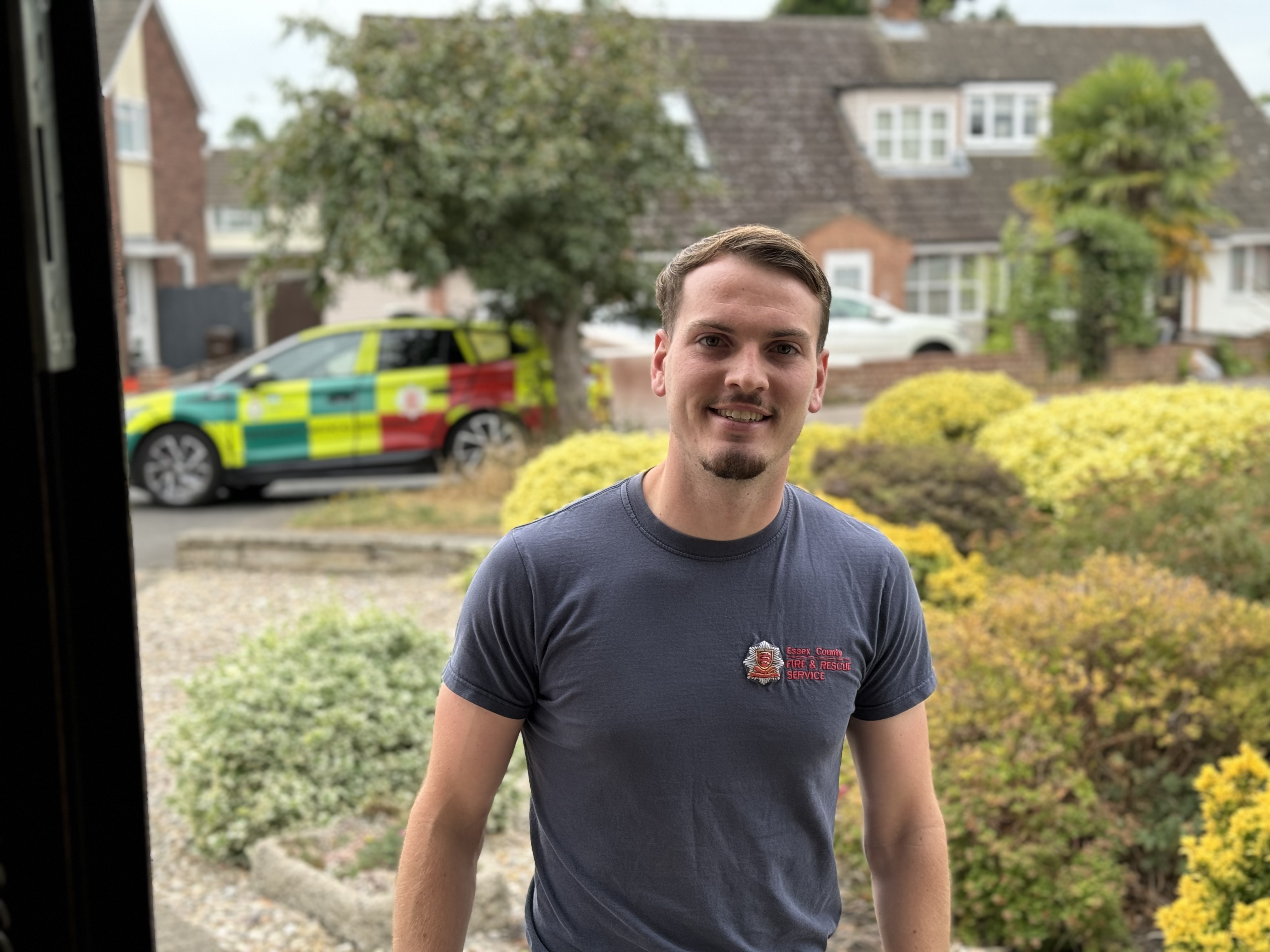
Dementia
Dementia leads to changes in a person's capabilities and behaviour, and those around them need to be alert to these changes and adapt as necessary. Of course, each person with dementia is different, and every home situation varies.
However, accidents involving people with dementia are more likely to happen, for the following reasons:
- Sense of balance and speed of reaction tend to decline as people get older.
- Physical difficulties and mobility problems make it harder to carry out some activities.
- Dementia affects memory and judgement. It also affects insight, so a person with dementia may not be aware that doing something might be dangerous to themselves or to other people.
- Those caring for someone with dementia are often tired, and feel under pressure.
- Accidents can be more likely to happen when people are stressed or confused.
There is no such thing as a completely risk-free environment for any of us, and when someone is living with dementia it may be that some minor accidents are inevitable. This information sheet presents some sensible precautions that those close to someone with dementia can take to help minimise risk.
When considering the needs of someone with dementia, it is important to find the right balance between independence and the need for protection. The person with dementia should be involved in decision making and their consent sought and given, where possible. Where this is not possible, it is vital that those making the decision have the person's best interests at heart.
Avoiding accidents
There are a number of ways to make a home safer. Some of these are simple, practical steps. However, an occupational therapist can advise you on the full range of ways to make your home safer, and on equipment to support the person with dementia. You can contact an occupational therapist through your doctor’s surgery or through social services.
Lighting
- Make sure that the lighting in your home is bright enough so that everyone can see clearly what they are doing, but avoid lighting which shines directly into people's eyes.
- If the person with dementia is likely to get up at night, leave a light on in the hall when you go to bed and a safe night light in the bedroom.
- Make sure there is a light on in the bathroom or toilet so the person can find their way at night.
Falls
- Some older people are unsteady on their feet and are more likely to fall. This can be dangerous. The risk of a fall can be minimised by paying attention to rugs, loose carpets (especially on the stairs) and slippery floors. Remove trailing flexes, unsteady furniture and clutter or objects lying on the floor. Handrails in the hall and on the stairs, grab rails in the bathroom and toilet, and a toilet seat riser will help if a person is unsteady on their feet. And will help to minimise any trips or falls.
- If the person has a fall that seems serious, don't try to move them or give them anything to eat or drink. If they have broken a bone they may need an anaesthetic later. Keep them warm and call for an ambulance.
- Similarly, equipment such as bath lifts, bath seats and other special adaptations can be arranged and fitted to make bathing safer. Seek advice from an occupational therapist as equipment should be considered with caution. A person with dementia may find it hard to learn to use new pieces of equipment and adaptations and this could increase the risk. An occupational therapist will carry out a thorough assessment to ensure tailored strategies for the person are in place to maximise safety.
Dangerous substances
- Always store medicines somewhere safe. If the person is unable to administer their own medication safely, arrangements must be made for someone else to do this. Containers that allow you to measure out medicines for the whole week are available from a pharmacist. Ask your doctors surgery for advice if difficulties continue.
- Lock away any poisonous substances, such as paint stripper, bleach or disinfectant, as a person with dementia may not recognise what they are.
- If you think that the person may have swallowed something poisonous, phone for an ambulance or take them immediately to the nearest accident and emergency department. Take the container and any remains of the substance with you so that the doctor will know what treatment to give.
The kitchen
- If the person no longer seems to recognise danger, remove any potentially dangerous implements, such as sharp knives, but place items in everyday use within easy reach.
- If necessary, consider fitting an isolation valve to a gas cooker, so that the cooker cannot be turned on and left on if the person is at home alone − your gas supplier can advise you about this. Provide an electric kettle that switches itself off automatically. Flood detectors are also useful in case taps are left on.
- Accidents do happen. If the person scalds or burns themselves, pour cold water over the affected area for least ten minutes to reduce the heat and lessen the pain. Burnt skin can swell so remove anything tight, such as a watch or a ring. Do not apply ointment or butter. Cover the area with a clean, non-fluffy cloth or wrap in cling film if available.
- Contact the doctor’s surgery and describe the injury, or take the person to the nearest accident and emergency department. Do not forget to tell the doctor or hospital staff about the person's dementia and any other information that may aid communication.
Heating
- Fires or heaters can be a danger for someone whose memory and judgement of danger are impaired.
- Always fit a fixed fire guard.
- Never dry clothes over a fire or a heater.
- Never take a portable heater into a bathroom.
- Make sure that all gas and electric appliances are serviced regularly.
- Consider installing an isolation valve which can be fitted to a gas fire in the same way as a gas cooker.
- Consider installing central heating or an electric fire that can be regulated with a time switch.
Fire protection
- Make sure that gas detectors and smoke alarms are fitted. Even if the person with dementia is living alone and is unable to respond to the alarm, it is possible that someone will pass the house and be able to take appropriate action. Alarms can also be set up to activate external warning devices that alert others to the situation.
- Smoke alarms give early warning of a fire, by detecting smoke and sounding an alarm. They are not needed in every room and are best fitted in hallways and at the top of stairs.
- Smoke alarms should not be in the kitchen and bathroom as heat and vapour from cooking and bathing can set them off unnecessarily. Do not fit too many alarms – a lot of noise can be confusing and disorientating. This could make it harder to get away from a fire.
- Smoke alarms are run by batteries or by mains electricity. You should test the batteries in your alarms once a week by pressing the button until the alarm sounds.
- You should replace smoke alarms every ten years.
- Fitting smoke alarms and carbon monoxide detectors can reduce the risk of fire in the home. Also consider the following when thinking about fire safety in the home.
Smoking
- A person with dementia who smokes runs the risk of starting a fire because they may forget that they have lit a cigarette and could leave it burning.
- If you live with a smoker who has dementia, it may be safest for you both if you keep the cigarettes, or at least the matches. There have been instances where a person with dementia no longer remembers that they smoke if their access to cigarettes is gradually reduced over a time. This is one of the difficult areas where the person's carer or family have to balance the risks against the person's autonomy and quality of life.
- Ensure there are enough ashtrays around the house if you smoke.
- Never smoke in bed.
- Try to have, or buy, furniture that is fire resistant.
Electric blankets
- Electric blankets can be dangerous for people with impaired memory, as overheating can cause a fire. If you use one, check that it has safety features, such as automatically switching off at a certain temperature.
- People who are incontinent should not use electric blankets.
Risk of Fire
Never leave lit candles unattended
If there is a fire:
- Don’t try to put it out.
- Leave the house straight away.
- Call 999 from a neighbour’s phone, mobile phone outside or from a phone box.
- Don’t go back in, not even for pets.
Cooking and Kitchen Safety
- It is important to check that your cooker is safe. For electric cookers, ask a qualified electrician to check it. For gas cookers, arrange a visit with a Gas Safe registered engineer.
- If you have memory problems, you may worry that you will forget to turn off the oven or hob. ‘Shut off’ devices are available to stop the gas supply if you forget to turn off the cooker.
- You can also have a special gas tap fitted that friends and family can turn off when they leave your home, known as a ‘lockable cooker valve'. This does mean that you won’t be able to cook unless someone is with you, so you will lose some independence. This can be a difficult decision, but it might keep you safe. Discuss it with family and friends before going ahead. Your gas distributor will fit one for free if you request it - to find out who to contact see 'Other useful organisations'.
- You might consider using a microwave instead of an oven. It can make cooking easier and can also be used to reheat food.
- Be extra careful when you’re in the kitchen, especially when cooking with oil or fat.
- Try to plan your kitchen so that things you use often are within easy reach. Also try to do the same for heavy things, such as flour and sugar or heavy equipment.
- Where possible, avoid climbing on chairs to reach cupboards. If you do need to reach high cabinets, use a small stepladder.
- Throw away food that has gone off or out of date. You could put a note on the fridge door as a reminder.
- If you have problems cutting food, try putting a non-slip mat under dishes or boards. This stops them from moving while preparing meals.
- You can buy knives with specially shaped handles, which are easier to control. Keep knives sharp and in good condition. Make sure you have a can opener that is easy to use.
- An electric kettle is better than a stove-top kettle as it automatically switches off once it has boiled. Don’t overfill the kettle, and only boil as much water as you need.
- Take extra care with boiling water, and use mugs and cups that have a wide base.
- Label cupboards and objects with pictures and words so that they can be identified.
- Place clear instructions that can easily be followed somewhere visible, such as on the fridge.
Practical steps - Asking the neighbours
- If a person with dementia lives on their own, or the person who lives with them is out of the house for long periods, a friendly neighbour may be prepared to keep an eye out for signs that something is wrong. You may be able to leave a spare set of keys with them and a phone number where you can be contacted if needed.
Access to their home
- If the person lives alone, it is important to sort out a way in which others can gain entry to the house. For this reason, bolts on the front door may not be a good idea.
- It is important to think through such a situation beforehand, so that if there is a crisis you can deal with it without the additional worry of wondering how you are going to get in. Key safes are a secure way of providing access. Only agreed friends, family members or carers would have the combination, and this can be regularly changed.
Useful details
It is a good idea to keep a list of useful phone numbers in a strategic location or programme them into your phone. These might include the numbers for:
- Gas, Water and Electricity (especially in an emergency).
- GP and Hospital.
- Social worker and home care agency, if involved.
- Local police.
- Local electrician, plumber, builder or locksmith.
- Local taxi.
- Carers, friends or family members.
It will also help if you list information such as:
- Practical steps on who to contact and how to deal with an emergency. For example, how to use an alert system.
- Advice on strategies that work for the person with dementia, e.g. to aid communication or manage distress.
- Where to find the gas and electricity meters, the fuse box and stop cock.
- Where to find the point to turn off the mains gas and water supply.
- Tell anyone who might need this information where to find the list.
If you or someone you know has dementia we can visit and make your home - or their home - as safe as possible.
A home safety visit can provide peace of mind and help people to stay independent and living in their own homes for longer.
Book a free home fire safety visit with our team for yourself or someone you know, you can call 0300 303 0088 or visit: www.essex-fire.gov.uk/book


